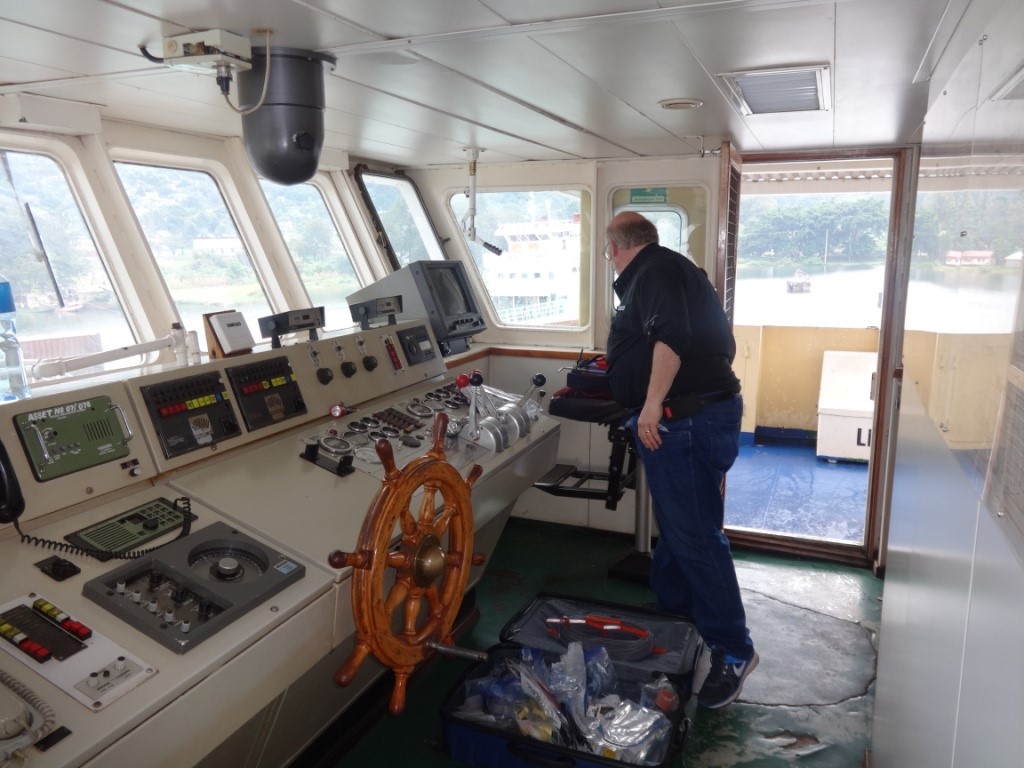Science at Sea – Life Aboard an Oceanographic Research Vessel
Saturday July 15th, 2017
Learn about the high tech equipment scientists use to learn about the oceans, the floating laboratories where they do their work, and the interesting items they bring back. “Please touch” exhibits will include rocks formed by undersea hot springs and volcanoes, a foam cup crushed by and a glass sphere untouched by deep ocean pressure, pink sand from Bermuda, and magnetic sand from right here on Long Island.

Photo credit Kamazima Lwiza. SoMAS Electronics Workshop engineer Thomas Wilson spreading his tools on the MV Serengeti ferry ready for installation of meteorological and hydrological sensors, in Mwanza, Tanzania, January 2016
Where did you go to school?
BS in Biology and Chemistry from the College of William and Mary, 1978.
MS in Marine Environmental Science, Stony Brook University 1983.
What is your area of research?
Design and operation of oceanographic and atmospheric instrumentation.
Who or what inspired you to become involved in marine science?
Reading Jacques Cousteau’s first book “The Silent World” at the age of 11.
What qualities do you think are important in order to become a scientist?
Curiosity: The desire to learn new things about the natural world.
Creativity: The ability to see new ways to look at things, to recognize where the gaps in understanding are, to imagine questions that fill in those gaps, and to design experiments that answer those questions.
Persistence: Being able to work hard and consistently and to fail many times in pursuit of a goal. “Many who fail never know how close they were to succeeding when they gave up.”
Teamwork: the ability to work cooperatively and positively with others in pursuit of common goals.
Communications skills: Being able to communicate what you do and why it is important – clearly, effectively, enthusiastically, and persuasively – not just to other experts but to anyone from a CEO to a custodian.
Why is your research topic important?
Accurate measurements of the natural world are critical to greater scientific understanding and wise management of our planet. Instrument systems go where people cannot and measure longer, deeper, higher, and more accurately than human observers.
What will you be bringing with you to the “meet with an Oceanographer” day?
Pictures of fieldwork from Antarctica to Africa.
Samples from the deep sea and right here on Long Island.
Equipment used to study the oceans and atmosphere.
What is the best advice you have for people interested in becoming involved in your field of research or in marine sciences?
Take as much science and math as you can.
Keep fish or plants or exotic pets as your interests lead you – nothing teaches chemistry and microbiology like trying to keep a marine fish tank.
For engineering: become a “maker”. Join a robotics team or just build projects in your basement. When things break around your house, fix them if you can or just take them apart to learn how they work.
What is your favorite ocean organism?
Flying fish.